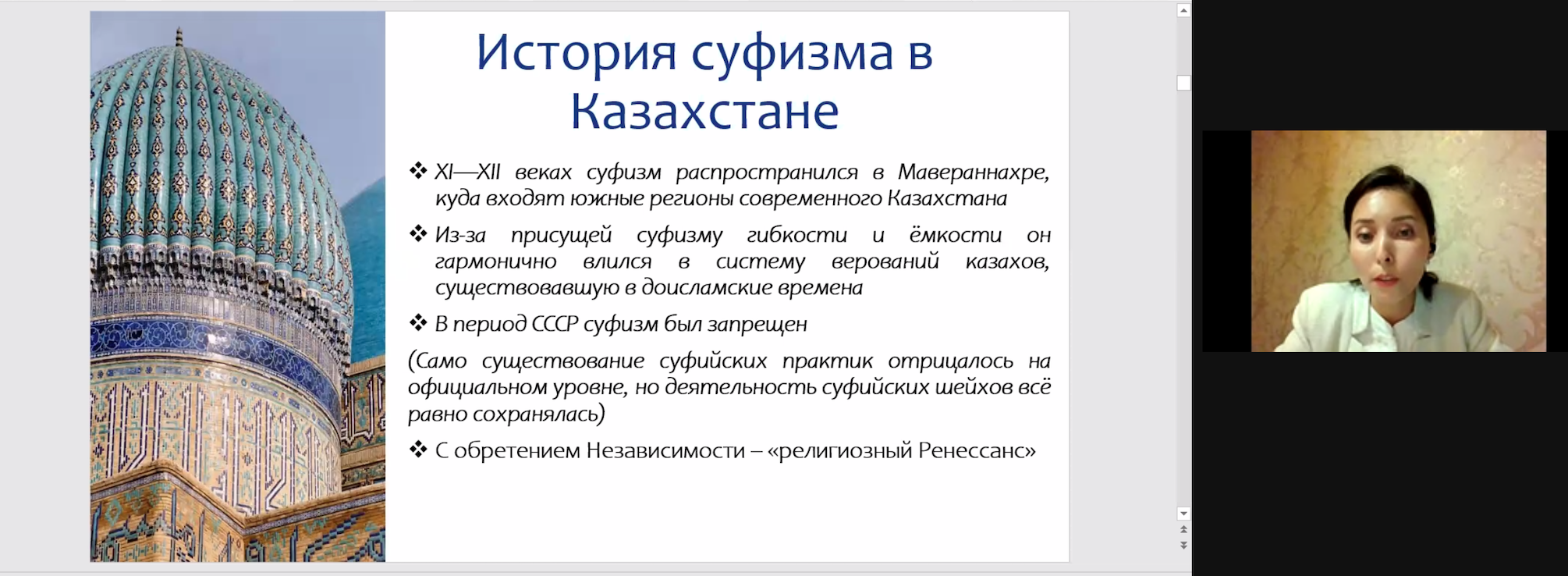On February 9, Aigerim Temirbaeva, a doctoral student of the Gumilyov Eurasian National University (Nur-Sultan, Kazakhstan) gave a lecture titled "Sufism in modern Kazakhstan: a continuation of tradition or innovation?", within the frame of series organized by the International Institute of Islamic Thought (IIIT) and the Institute of Knowledge Integration (IKI).
During the lecture, Aigerim Temirbaeva outlined the main phases of the history of Sufism in Kazakhstan. She stated, that in the XI-XII centuries, Sufism spread in Transoxania, that includes the southern regions of modern Kazakhstan. Due to the flexibility inherent in Sufism, it perfectly integrated into the belief system of the Kazakhs, existent in pre-Islamic period. During the Soviet era, Sufism was banned, as well as all Sufi practices.
The lecturer introduced audience to the modern Sufi groups in Kazakhstan, their history and residence areas, the main features of their modern leaders (sheikhs) social image.
In the second part of the lecture, participants asked their questions, particularly about the perception of Islam by Kazakh society, its interaction and relations with the authorities, various Islamic movements in Kazakhstan. It was admitted by the participants that a lot of information from the lecture was new for them, as they had not previously had the opportunity to learn about Islam in Kazakhstan.
Almost 40 participants from different countries, such as Ukraine, Kazakhstan, Russia, Uzbekistan, Kyrgyzstan, Turkey, and Georgia, attended the lecture.
The announcement of the next event will appear soon on Facebook pages of the IIIT lectures series for CIS countries and Institute of Knowledge Integration.









